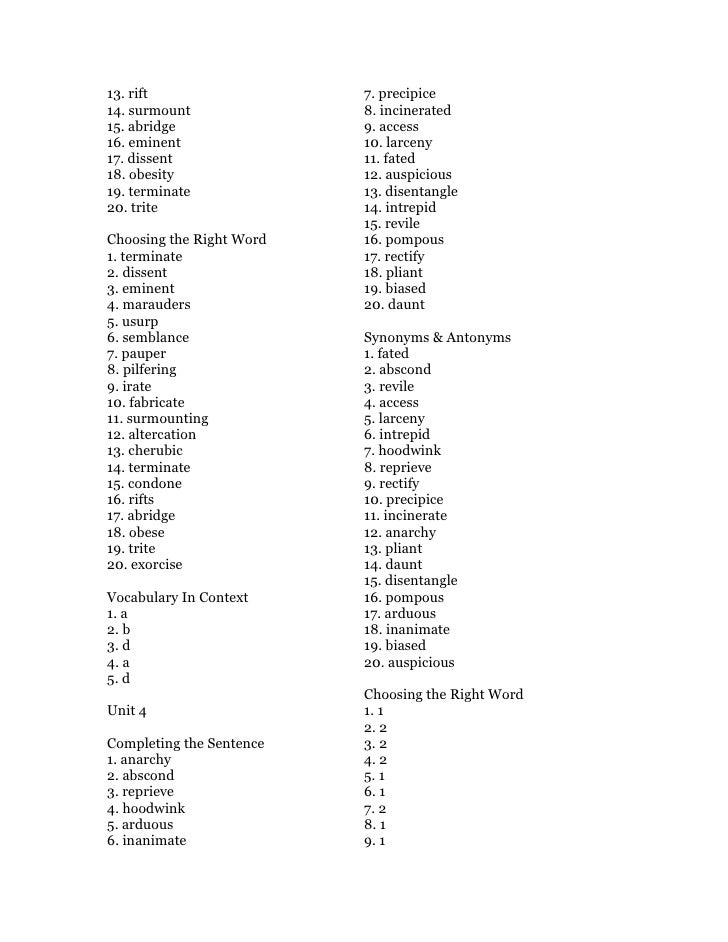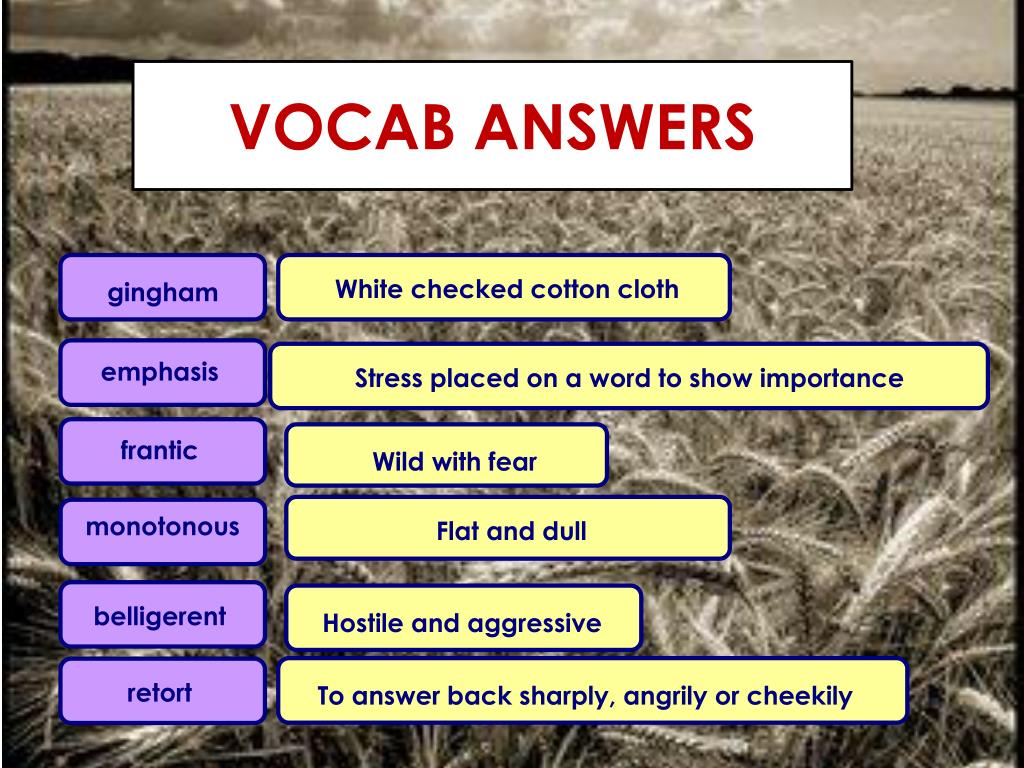


“Well, to relax, I find a long hot bath with some candles and music, really invigorates me for next day”.
#VOCAB ANSWER FULL#
Invigorating – making one feel strong, healthy, and full of energy. “I think I am a big proponent for making the world a cleaner place, for example…”. Proponent – a person who advocates for something. “A person I admire a lot would be Sir Lewis Hamilton, during his career he has been at the pinnacle of motorsport”.

“Well, a person I admire a lot was the Queen of England, and I find it ludicrous some countries would prefer to be a republic, rather than have her as head of state”. Ludicrous – unreasonable, or out of place, so as to be funny. You can see the meaning of the words followed by an IELTS-specific example. For example, the cue cards usually ask you to talk about a person, place or an experience. These words were selected because we believe they could be used easily used in the speaking exam.

Here are a list of words that can be considered ‘advanced’ because although they are understood they are used far less in everyday English. Vocabulary for IELTS Speaking TopicsĮach link below covers a familiar topic on the speaking test along with extensive vocabulary lists, definitions, and a sample answer. Use this to increase your vocabulary with useful speaking grammar, lexical resources and idioms and phrases for your speaking.
#VOCAB ANSWER HOW TO#
You’ll find example speaking questions and how to use these words in context and the definitions of each word. Basically, there are many ways of looking at the issue of language complexity depending on the participants' perspectives.Home » IELTS Speaking test format and sample questions » IELTS Speaking Vocabularyīelow you will find the IELTS speaking vocabulary for different topics in the IELTS speaking test. If we are comparing inflectional morphology: Russian and German are more complex than English. If we are developing an English-Japanese translator - the Japanese language is VERY complex, if a Chinese person is learning Japanese, it is MODERATELY complex. (elaborating on the issue of "topic" mentioned by Oliver above): each particular topic has its own set of terminology (knitting vs airspace engineering) but the total term density will depend on the author's vocabulary.Īs to your first question of language complexity, every language's complexity is relative to the issue at hand.How exactly do you tokenize and count vocabulary in your corpora?įor example, if you count compounds as a number of separate tokens you will have slightly different numbers compared to if you counted each compound noun as one token.
#VOCAB ANSWER PROFESSIONAL#
By limiting my vocab, I can make a text more 'plain' (and leave more to the reader's imagination).Īpart from what Oliver has mentioned, from my professional experience the size of the vocabulary in a corpus often depends on the following: style: similar to (1), I have an influence on the vocab size by how I write.Wikipedia in general uses a broad range of words, but if you only take the articles on animals, the vocab will be more restricted. topic: this is probably the biggest factor, as a very limited, technical topic will result in a more limited vocab.There are many near-synonyms, so it's easier to use more different word. the language itself: a bit of an anomaly, but English has a much larger vocabulary than some other languages, due to its history.If I write in a foreign language where I don't know that many words, it will of course be smaller active vocabulary of the author: if I write a text in my native language (where my vocab is large), the number of different words I use in it will be bigger.
#VOCAB ANSWER UPDATE#
Update after clarification: The size of the vocabulary depends on various factors, such as: Most reading comprehension measures combine the length of words and sentences, on the assumption that longer words and longer sentences are harder to understand however, shorter words tend to have more different meanings, and are arguably harder to understand if their meaning is not clear from the context. This is not a measure that can easily be quantified (such as, eg, sentence length). In order to answer the second part properly, you'd need to define first what exactly you mean by 'complexity'. If the grammatical structures are convoluted, then even a smaller vocabulary can lead to very complex sentences. Language consists of a lot more than just vocabulary.


 0 kommentar(er)
0 kommentar(er)
